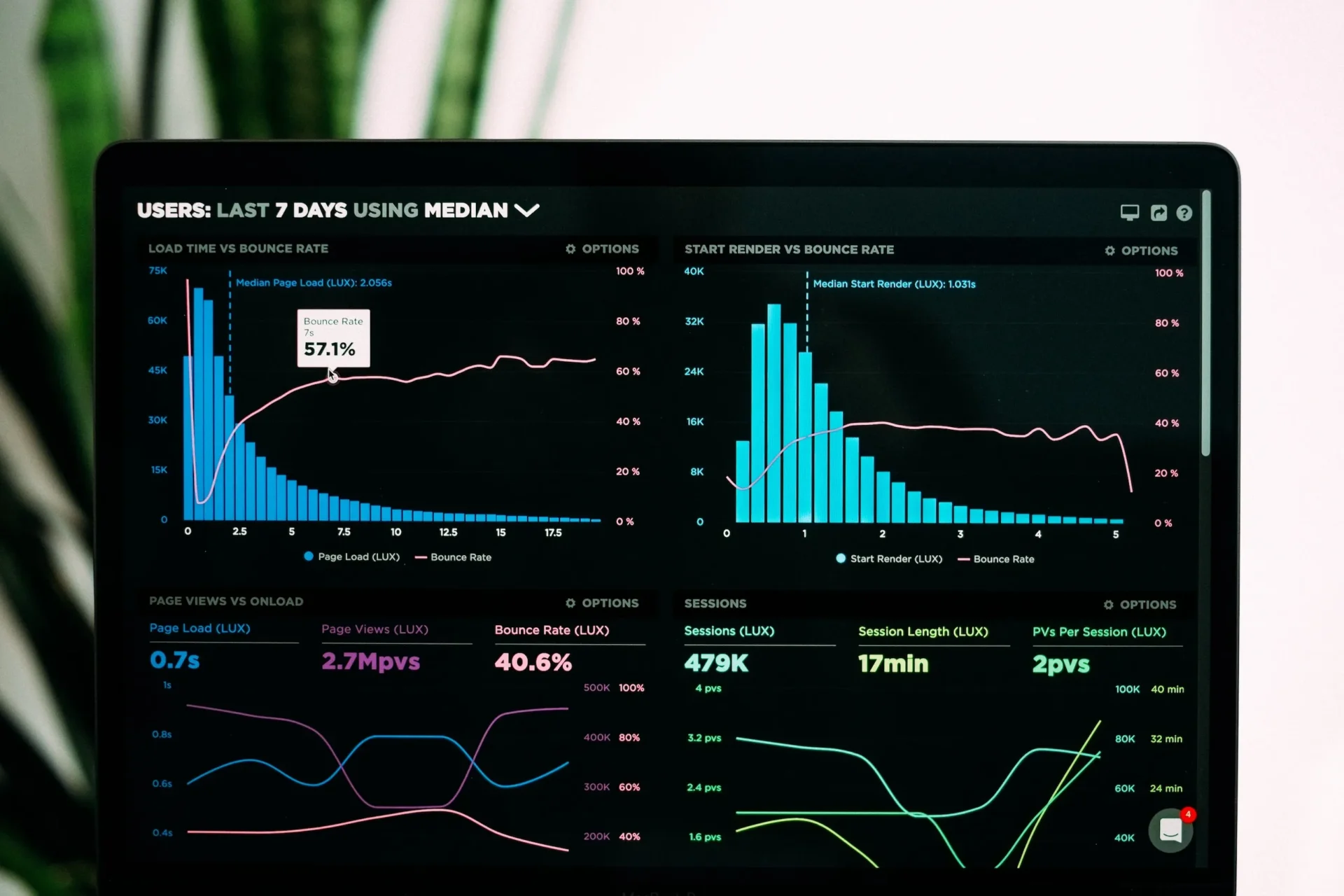
May 31, 2022
Key Advantages of Outsourcing Data Analytics
Author:

CEO & Co-Founder
Reading time:
8 minutes
The global big data analytics outsourcing market value is projected to reach $60.3 billion by 2028, up from $5900 million in 2020 [1]. This represents a CAGR of 34% in just eight years. In a world where data-driven decision-making is crucial for optimizing performance and spurring growth, the question is no longer whether or not to process data analysis. But rather whether to build an in-house team or choose to outsource data analytics.
Most small to medium-sized companies have chosen to go with the latter, citing high operational costs and scarcity of data analytics professionals as the main driving factors. However, for most big companies and a fraction of smaller companies, building their own data analytics team [2] seems like the only viable option. This begs the question, which is the better? And which benefits and limitations do each choice present?
This guide will focus primarily on data outsourcing analytics to gauge its suitability across different organizations.
Introduction to Outsourcing Data Analytics
Technology is changing how organizations operate and IT solutions like data analytics, artificial intelligence and machine learning will gain further traction as businesses push to get a competitive advantage. Here are a few reasons why you may want to implement data analytics in your company.
Make informed business decisions
Data analysis can help you make informed, data-driven business decisions that ultimately minimize financial losses and increase productivity. Moreover, data analytics solutions can help you predict what could happen in response to particular changes to your company or offer valuable insights on how you should react to these changes [3].
A good example of this application is a business modeling changes to pricing and product offerings to gauge how these changes affect customer demand. In this case, the company can use A/B testing to validate the hypothesis produced by the model [4]. After collecting data on the changed products, the business can then use analytics tools to determine the effectiveness of the changes.
Personalize customer experience
Companies collect customer data in various ways, including e-commerce, physical retail and social media [5]. With this data, companies can get insights into consumer behavior and provide a more personalized experience by employing data analytics to create comprehensive customer profiles.
Consider a company that has a physical and an online store. Such an entity could analyze its sales data and information from its social media pages to build targeted social media campaigns and increase e-commerce sales in product categories where customers are already interested.
They can also use customer data to run behavioral analytics models to optimize the customer experience further [6]. A good example is a business running a predictive model based on e-commerce transaction data to determine the most viable products to recommend at checkout.

Streamline business operations
Data analytics can improve operational efficiency in your organization. By gathering and analyzing supply chain data, businesses can determine the origin of production delays and other bottlenecks, which helps them predict where future problems may arise.
Additionally, many entities, especially in retail, struggle to maintain optimal inventory levels. By leveraging data analytics, they can optimize inventory supply for all their products based on factors like secular trends, seasonality and holidays.
Enhance security
The number of ransomware attacks is growing at a rate of 350% annually. These attacks were up 600% in 2017, with small and medium-sized companies with less than 1000 employees accounting for 17% of the attack victims [7].
Companies can use data analytics to evaluate and diagnose the causes of past data breaches by processing and evaluating organizational data. For example, IT departments can use analytics applications to transform, process, and visualize a company’s audit logs and hence determine the origin of an attack, locate vulnerabilities, and patch the system.
A wide majority of data security threats come in the form of distributed denial of service (DDoS) attacks. Organizations can use statistical models to prevent future attacks by setting them up to run automatically with layered monitoring and alerting systems. This enables them to detect and flag anomalies so IT experts can take action immediately.

Key Advantages of Outsourcing Data Analytics
Cost Efficiency and Scalability Benefits
For many small and medium-sized companies, hiring full-time IT experts is cost-prohibitive. Data analytics outsourcing presents a cheaper alternative to having an in-house data analytics team.
Getting a trusted outsourcing partner lets you save on the costs associated with onboarding new employees, technology and licensing fees for equipment, paying full-time salaries and more. The team you choose to go with will have its own infrastructure and cover all associated costs. You’ll only have to pay your solutions provider an agreed-upon rate.
Maximize presentation
Data analytics outsourcing specialists don’t just give you the data you need to make informed business decisions. They also present it in a professional, organized and easily-comprehensible way.
Apart from outsourcing data analytics services, if you outsource data analytics company, you will probably receive your analytics reports in a digestible format that will enable you to make informed business decisions. Most packages include a dashboard that features graphs, a big-picture view and much more.
If you ever need to create presentations for employees or stakeholders, the visual information can help inform your presentations. Essentially, all you need to do is pull the data from the reports and transfer it to your preferred data presentation application.
Save time
Regardless of the nature or size of your organization, there are high chances that you’re generating more data than you can keep track of. A typical entity collects data about its customers, sales, social media visitors, website visitors and much more. Sorting through all this data and turning it into actionable insights takes lots of time, more than what most businesses have to spare. Getting a trusted outsourcing specialist takes these tedious and time-consuming tasks out of your hands, giving you more time to focus on other concerns.
Access to Specialized Expertise and Advanced Tools
Outsourcing data analytics doesn’t just offer analytics reporting solutions. The company you’ll choose will also use various tools and skilled data scientists to give you a comprehensive analysis of your data and actionable insights.
Many providers use industry-leading analytics platforms, machine learning algorithms and AI-driven data processing tools to deliver deeper insights. These advanced technologies help companies process large datasets efficiently, detect patterns and make data-driven decisions faster.
Additionally, outsourcing data analytics companies employ skilled data scientists and analysts who have experience with various data analytics methodologies, predictive modeling, and business intelligence strategies. This ensures that businesses receive high-quality, actionable insights without the need to invest heavily in specialized training or expensive software licenses.
By leveraging external expertise and technology, companies that choose to outsource data analytics, can stay ahead of competitors and continuously improve their data-driven decision-making processes.

Potential Risks and Challenges in Outsourcing
Risk of choosing the wrong provider
Like any other outsourcing engagement, choosing the right outsourcing data analytics provider is always a challenge. You’ll want an outsourcing company that’s affordable and has the right cultural fit and alignment with your organization. And with most providers advertising themselves as the best, it’s not always easy to tell if they’re really worth working with, especially when they don’t have any referrals from reputable organizations.
Lack of on-site support
Some businesses are pretty reluctant when it comes to data analytics outsourcing as they feel more comfortable having an on-site analytics team. The added convenience of having an on-site analytics team affords is very beneficial for companies that require constant data analytics to streamline operations. However, having an on-site team is not always cost-effective.
Impact on In-House Knowledge and Control
Some organizations don’t like the idea of putting their data analytics needs in the hands of outsourcing partners. Well, outsourcing data analytics essentially takes control out of your hands. Once you sign a contract and surrender your data to an analytics solutions provider, you have limited control over what they do with the data. This can prove problematic for businesses dealing with sensitive customer data. However, this can be easily managed with constant monitoring, improved communication, and collaborative project management.
Security and Data Privacy Concerns
When dealing with analytics outsourcing specialists, organizations have to be prepared for the risk of exposing sensitive organizational data. That said, there are numerous ways to ensure that an analytics provider is trustworthy and able to keep all company data confidential.
Therefore, before working with an outsourcing company, do your research to pick a provider that can ensure the safety of your data using clear, specific strategies. The security measures the provider plans to take should also be part of your agreement with the company.

Best Practices for Successful Outsourcing
To maximize the benefits of data analytics outsourcing, businesses should follow key best practices. First, define clear objectives and expectations from the start, ensuring alignment with the outsourcing partner. Establish strong communication channels to facilitate collaboration and feedback. Additionally, choose a provider with a proven track record, industry expertise and robust security measures to protect sensitive data. Regular performance reviews and KPI tracking will help ensure that the outsourced analytics services continue to deliver value and drive business growth.
Final thoughts: Balancing Outsourced and In-House Analytics
The question as to whether or not to employ data analytics outsourcing solutions has baffled many businesses over the past few years. While having an in-house analytics team certainly provides added convenience, working with an outsourcing partner is more cost-effective. Essentially, your choice between the two ultimately depends on your unique needs. Finally, when it comes to data analysis, the key seems to be thoughtfully combining features of outsourced and in-house analytics to achieve full data knowledge.
Updated version from May 31, 2022.
Category:





